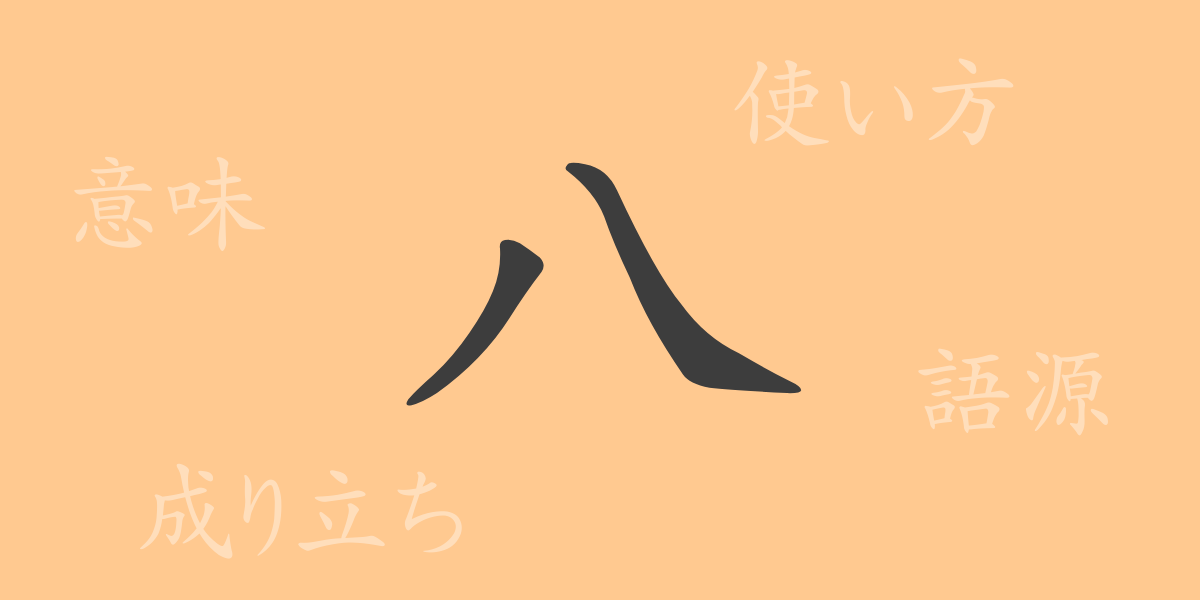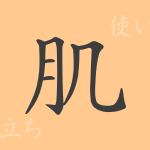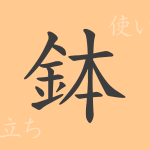Kanji, deeply rooted in Japanese culture, carry profound meanings and histories within each stroke. This time, we focus on the commonly used kanji “八” (hachi), which is closely intertwined with our daily lives. While “八” (hachi) is frequently used as a numeral, it holds more significance beyond just representing the number eight. In this article, we will delve into the origins, meanings, usage, and idioms involving “八” (hachi) to uncover its allure and depth.
The Origins of 八 (hachi)
The character “八” (hachi) originates from ancient China and represents two small pieces opening apart, symbolizing “to divide.” This concept led to the meaning of “to separate.” Additionally, because its shape widens at the top, “八” (hachi) also conveys the idea of “expansion.” Thus, “八” (hachi) embodies the concepts of expansion and dispersion through division.
Meanings and Usage of 八 (hachi)
Primarily, “八” (hachi) signifies the number eight, but its use extends far beyond that in various contexts. As seen in idioms like “八方美人” (happou bijin, a person who tries to please everyone) and “八百屋” (yaoya, a greengrocer), it indicates directions and quantities. Moreover, in expressions such as “八つ当たり” (yatsu atari, lashing out in frustration), it is used metaphorically to describe emotional behavior.
Readings, Stroke Count, and Radical of 八 (hachi)
“八” (hachi) is a basic kanji with simple readings and structure.
- Readings: The *on’yomi* (音読み) is “hachi,” while the *kun’yomi* (訓読み) readings are “ya,” “yatsu,” and “you.”
- Stroke count: “八” (hachi) consists of only 2 strokes.
- Radical: It falls under the 八部 (hachibu) radical category.
Idioms, Expressions, and Proverbs Using 八 (hachi)
There are numerous idioms, expressions, and proverbs in Japanese that incorporate the kanji “八” (hachi). Here are a few examples:
- 八方美人 (happou bijin): Refers to someone who tries to please everyone, being agreeable in every direction.
- 八百屋 (yaoya): A shop that sells vegetables and fruits.
- 八つ当たり (yatsu atari): Taking out one’s anger or frustration on others without cause.
- 八面六臂 (hachimen roppi): Describes someone who can handle many tasks simultaneously.
- 出る杭は打たれる (deru kui wa utareru): A proverb meaning that standing out or being exceptional can lead to jealousy and criticism from others. Here, “八” (hachi) signifies the number of stakes.
Conclusion on 八 (hachi)
The kanji “八” (hachi), with its simple form, harbors rich meanings. Beyond its role as a numeral, it is embedded in various expressions that reflect Japanese culture and thought. Through the idioms and phrases introduced, we can glimpse the diverse aspects of “八” (hachi). Next time you encounter “八” (hachi) in daily life, consider reflecting on the historical and cultural significance behind this humble character.

























